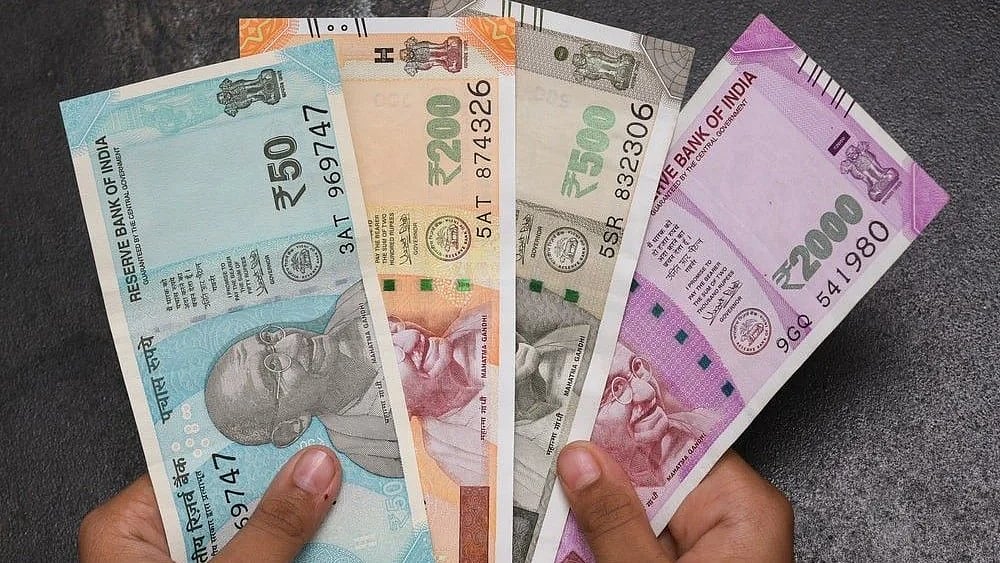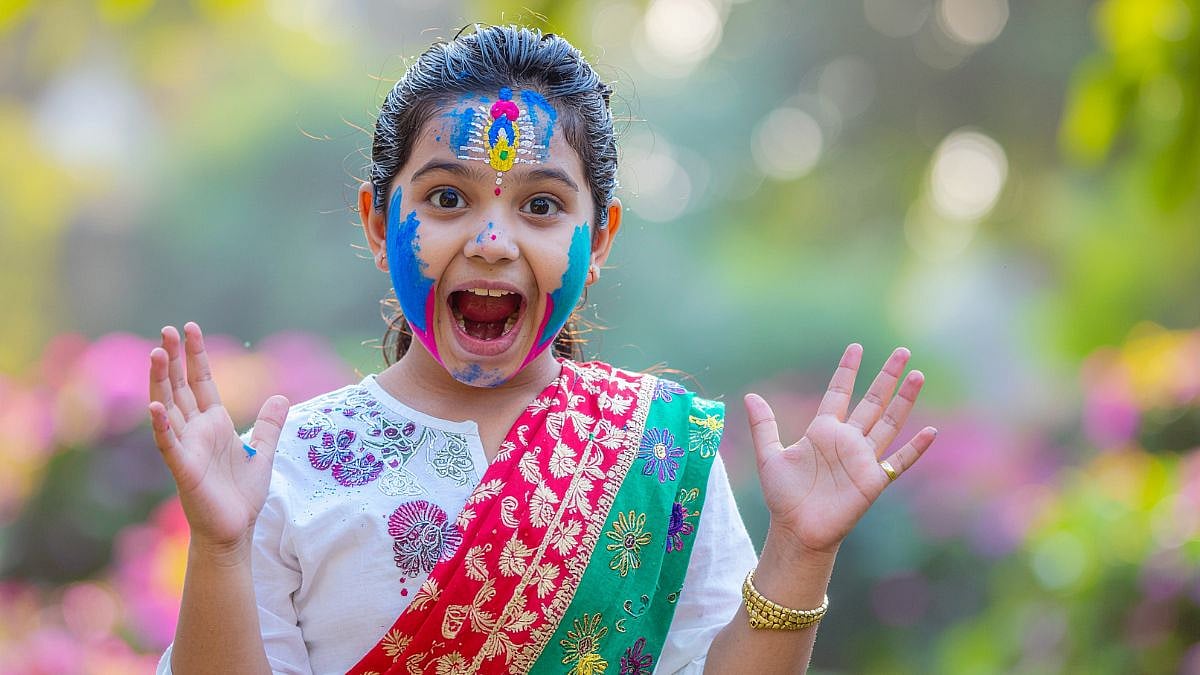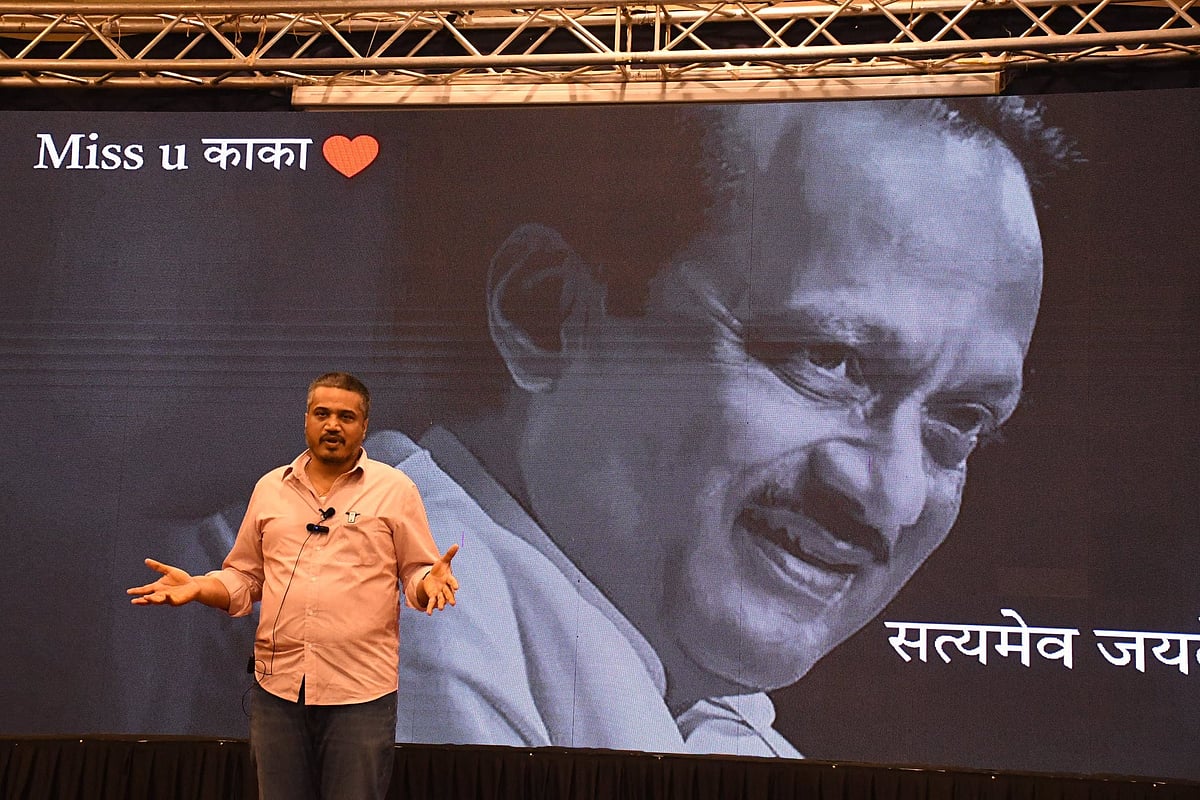Hours after the campaigning for the first phase of Bengal polls was over, the Prime Minister immediately fastened his seat belt to proceed on his Bangladesh tour... this we all know. But a closer look at his visit and itinerary clearly reveals his political acumen and how he hit a straight drive. After landing in Dhaka and completing the formalities, the Prime Minister visited two Hindu temples outside Dhaka, of the Hindu Matua community, whose members live in large numbers in West Bengal.
The PM’s visit to the temples will have a huge political impact on the community’s voters in the poll-bound West Bengal. The Matuas, with an estimated population of three million, will decide the fate of 60 to 70 assembly seats. Orakandi is home to hundreds of Hindu Matuas, a large number of whom reside in West Bengal.
Before his visit, Modi had said he was eagerly looking forward to his interaction with representatives of the (Matua) community at Orakandi, from where Sri Sri Harichand Thakur had delivered his spiritual sermon.
Analysts strongly feel that Modi’s planned temple visit has huge ‘poll-itical’ significance, with the eight-phased Bengal assembly elections having begun from March 27.
Who are the Matuas?
The Matua Mahasangha is a religious reform movement founded around 1860 AD in Bangladesh, with a considerable following in Bangladesh and West Bengal. Matuas are a sect of Vaishnavites. They are ‘Namashudras’ and a scheduled caste group. The movement was launched by the followers of Harichand Thakur. Thakur attained atma darshan at a very early age and began preaching his philosophy.
Initially, the Matua Mahasangha followers or Matuas formed an organisation in Orakandi in Faridpur, Bengal Presidency (currently Bangladesh). After Partition, their followers formed a second organisation in Thakurnagar, West Bengal.
In West Bengal, the influence of the Mahasangh was made notable and spread by Guruchand Thakur’s son, Pramatha Ranjan Thakur, and his wife Binapani Devi, popularly known as ‘Boromaa’.
West Bengal has 10 of its 42 parliamentary constituencies reserved for the SCs and has the second highest SC population in the country currently. In the 2019 Lok Sabha elections, the BJP won four of these 10 SC seats.
After Pramatha Ranjan Thakur died, Boromaa became the chief matriarch of the Matuas until her death in 2019. Over the years, even as many political parties sought Boromaa’s blessings, several members of the Thakur family joined politics.
Initially, strongly rallying behind the Congress, the community later began to lean Left from 1977. In 2009, both Mamata Banerjee and the Left approached Boromaa, but she chose the TMC over the Left. In 2010, Boromaa even made Mamata the Matua Mahasabha’s chief patron. Mamata made efforts to win the hearts of the community. As Railway Minister, she gave the Thakurnagar Railway station a facelift and then as chief minister, she built schools and colleges in Thakurnagar.
She also gave TMC tickets to Boromaa’s sons, Kapil Krishna Thakur and Manjul Krishna Thakur for the Lok Sabha and the West Bengal assembly elections respectively.
The Thakur family was split after Kapil Krishna Thakur died in 2014, when his wife Mamata Bala Thakur took over his parliamentary seat. In 2015, Manjul joined the BJP, along with sons Subrata Thakur and Shantanu Thakur. In the 2016 state elections, the Matua community voted hugely for the TMC.
It was before the 2019 Lok Sabha elections that Prime Minister Narendra Modi met Boromaa, a few months before she passed away and promised citizenship to the Matuas, if the BJP was voted to power. He was hailed by Shantanu Thakur, who fought against Mamata Bala Thakur on a BJP ticket and won.
NRC and CAA
It may be noted that after the Assam NRC and reports of a huge number of Hindus being left out of the final NRC list came to the fore, the Matuas became a trifle wary of the CAA. Soon, the BJP changed its tack and entirely stopped mentioning the CAA or the NRC in its campaigns in Bengal. This ‘isolation’ over the matter annoyed Shantanu, who made his disappointment evident and even went to the masses with it. However, after repeated attempts by the BJP top brass to placate him, he seemed to ‘return’. But the grapevine has it that he is not willing to let the CAA issue go away.
The Matuas being Namashudras, are a caste group that falls outside the four-tier Hindu caste or Varna system. Their numbers grew over the years and during the Partition of Bengal, a large-scale influx of these groups from East Bengal (now Bangladesh) was witnessed.
Hence the Matuas, are refugees…in technical terms for the saffron party, they are Hindu refugees who were ‘persecuted’ in another country and will be granted ‘citizenship’ under the CAA in a country in which they have been living since Partition.
Now, things are poised interestingly. Shantanu had accompanied PM Modi during his Orakandi visit and has expressed pleasure over PM Modi’s visit. This time, Shantanu’s brother Subrata Thakur is contesting from Gaighata on the BJP ticket.
Modi's promises
Prime Minister Modi, meanwhile, announced that New Delhi would upgrade one girls’ middle school and set up a primary school in Orakandi.
“My visit to the Orakandi Thakurbari is an experience I will remember for life. This is a very sacred place, which is closely associated with the Matua Community” Modi tweeted.
“To make this pilgrimage easier for citizens of India, efforts will be made on behalf of the Government of India,” he said.
His speech is a clear indication of another attempt to woo the community, even after campaigning for the first phase was over. The PM tactfully used his visit to pass on the message, albeit from across the border, with the Matuas closely watching the latest happenings on this side of the border, especially before they vote.
How the Hindu vote will split
For the BJP, a major concern is the split of the Hindu votes, which is actually the core of its electorate. Even as the Left forces have ceased to remain a power to reckon with, more than Muslims, there are Hindu voters who ‘still’ have a soft corner for Leftist forces, especially in West Bengal. A sizable number of Hindus who have benefited from the TMC will obviously vote for Didi. Thus, at a moderate estimate, about 12 to 15 per cent Hindu votes will be eroded from BJP’s vote bank. The Muslim voting pattern this time may be different. With the emergence of Abbas Siddiqui’s Indian Secular Front, Muslims are in two minds now - whether to vote for Abbas or for Mamata. And any erosion of Muslim votes in this crucially polarised situation will matter a lot to the TMC than any other party.
Voting has just begun and with seven phases still left, the match is wide open. There are various factors which impel voters and last-minute campaigning matters a lot – cast back to Amit Shah’s whirlwind roadshow in the last phase of the campaigning in the 2019 Lok Sabha poll and how it changed things for the BJP. Before that last push, political pundits had given 9 to 10 seats to the BJP, but by the end of the last roadshow and after that the ‘mysterious’ destruction of Ishwar Chandra Vidyasagar’s statue, the script went awry for the TMC and the BJP ended with 18 seats, a sharp rise from two seats in 2014. So, it ain’t over until it’s over. Picture abhi baaki hai, doston!
The writer is Senior Associate Editor, Free Press, Indore.




